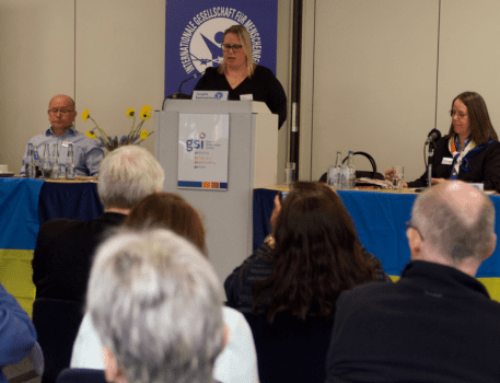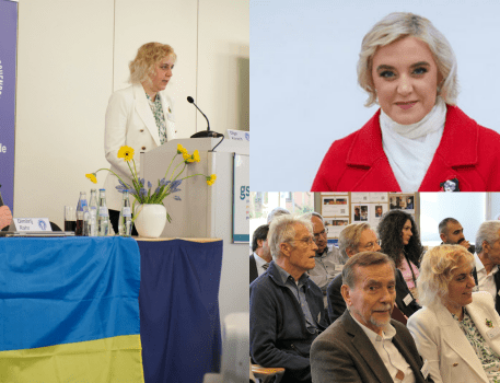Monitoring the case of Shapoval N.P. (hearing 04/27/2020)

On April 27, 2020, a hearing was held in the Artyomovsky City Court of Donetsk Region on charges of Shapoval N.P. of committing a crime under subsection 1.4 of Part 2 of Article 1115 of the Criminal Code of Ukraine.
During the trial, the prosecutor filed a request for an extension of the measure of restraint in the form of detention, since the risks foreseen in paragraphs 1,3,5 h. 1 art. 177 of the Code of Criminal Procedure of Ukraine (2012), the defendant can hide from the court, put pressure on the victims, witnesses, or commit a new crime.
The defense counsel requested that the prosecutor’s petition be denied because “… it is not substantiated, the petition does not indicate evidence that confirms the risks, there is no evidence of the defendant’s guilt, the punishment is life imprisonment, it is not a risk, it cannot be said that the defendant was repeatedly convicted, previously he was convicted only once, the verdict in this case has not been decided, and after a week the defendant has been detained for 10 years, and according to the “Savchenko law” it is 20 years, and after serving 20 years of punishment there are grounds for applying for pardon.”
In addition, the accused himself asked to choose a measure of restraint in the form of house arrest, since the prison administration creates improper conditions for him in detention, he was bitten by bugs, he was forced to refuse food provided by the administration, since it was not proper quality, in addition, water flows from the ceiling, clothes do not dry out in 3 days. He asked to be transferred to another room, but he was refused. The accused believes that such conditions of detention are a direct threat to his life. He will not influence witnesses and will not hide from the court. He is physically unable to be detained in such conditions.
As a result of the review, the court granted the request of the prosecutor.
Representatives of the ISHR are concerned about the timelines for the consideration of this case, the lack of adequate justification for the risks that form the basis of the decision to extend the terms of detention, as well as the conditions of detention of the accused.
Article 6 of the Convention recognizes the right of every person prosecuted in a criminal case to receive a final decision within a reasonable time on the validity of the charges against him, or rather, to ensure that the accused do not remain for a long time under the weight of the charge and that a decision is made on the validity the charges (“Vemkhov v. Germany”, para. 18; “Julia Manzoni v. Italy”, para. 25; “Brogan and others v. the United Kingdom”, para. 65).
Having studied the history of court decisions in the case, it can be established that in 2020, court hearings exclusively considered issues of extending measures of restraint.
According to paragraph 3 of Article 5 of the Convention after a certain period of time, just the existence of reasonable suspicion that does not justify the deprivation of liberty, and the courts should give other reasons for the extension of detention (“Borisenko v. Ukraine”, para. 50). Moreover, these grounds must be clearly indicated by the national courts (“Eloev v. Ukraine” para. 60, “Kharchenko v. Ukraine” para. 80).
The court often found a violation of paragraph 3 of Article 5 of the Convention in cases where the national courts continued detention, referring mainly to the gravity of the charges and using template language, without even considering specific facts or the possibility of alternative measures (“Kharchenko v. Ukraine”, paras. 80-81; “Tretyakov v. Ukraine” para. 59).
The existence of a reasonable suspicion of a crime committed by a detained person is an indispensable condition for the legality of his continued detention, but after the lapse of time such a suspicion will not be sufficient to justify prolonged detention. The court never attempted to translate this concept into a clearly defined number of days, weeks, months or years, or at different times depending on the gravity of the crime. Once “smart suspicion” is no longer sufficient, the court must establish that the other grounds given by the courts continue to justify the person’s deprivation of liberty (“Maggie and Others v. The United Kingdom”, paras. 88-89).
The accused is previously convicted, and the crime attributed to him is characterized by special severity. However, even in cases of such complexity, the extension of the terms of detention should be well-reasoned. And this requirement is, first of all, established for the Prosecutor’s Office. Representatives of the ISHR have repeatedly emphasized that the “burden” of argumentation for extending the measure of restraint rests with the court, while prosecutors use template language, without reference to specific facts, confirming the risks, counting on an automatic extension.
And even if the periods of detention continue, the European Court of Human Rights has repeatedly emphasized that the state must ensure that a person is detained in conditions that are consistent with the principle of respect for their human dignity, and that the method and restrictions of freedom do not cause him mental suffering or difficulties that exceeded the inevitable level of suffering inherent in detention and that, in accordance with the practical requirements of imprisonment, health care was properly ensured (“Kudla v. Poland,” paras. 92-94).
Thus, in a case randomly selected in the list of broadcasts of court hearings, so many negative trends are concentrated. Representatives of the ISHR will continue to monitor the case through broadcasts. The next hearing is scheduled for May 25, 2020.








Leave A Comment